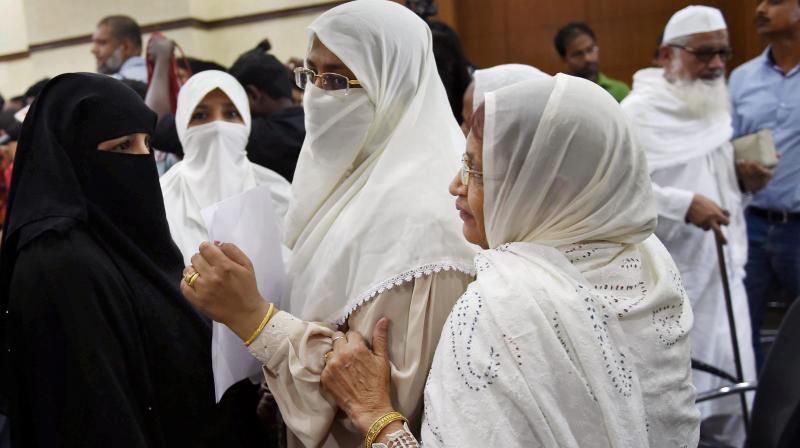Target triple talaq, act slowly on UCC

Some well-known Muslim organisations, such as the All India Muslim Personal Law Board and the Jamiat-ulema-Hind, are breathing fire on the issue of having a Uniform Civil Code (UCC) for the country superseding the Sharia-based personal law governing marriage, divorce, succession and inheritance for Muslims.
This is unnecessary and unreasonable. The AIMPLB has said the government was waging “war” on the Muslims of India. This amounts to sensationalising an issue on which all arguments are decades old. On a Supreme Court reference, the Law Commission had proposed nationwide consultations on the question of “triple talaq”, which is agitating many Muslim women, and also wondered if stakeholders would offer their views on the question of having a common civil code.
The AIMPLB is free to dismiss the Law Commission’s questionnaire and not respond to it. But it must be clearly understood that the Law Commission is not the government. In any case, a political party like the Majlis-e-Ittehadul Muslimeen (MIM) of Hyderabad has elected to respond to the questionnaire, in the course of which it will doubtless voice its opposition to UCC. The AIMPLB could have chosen a similar course.
But it has opted for the agitational approach. Perhaps this is more to sound militant about its rejection of “triple talaq”, a matter which is before the Supreme Court. This issue has agitated many, including elements within the Muslim community, as it is easily identified with the rights of women and their treatment at the hands of patriarchal institutions which wish to carry on with medieval-era practices.
It might be best, of course, if the triple talaq issue can be compartmentalised from the wider issue of UCC. It is frequently heard that all citizens, regardless of their religion, should come under the same law. But this is already an accomplished fact. Except for personal laws, which are a minuscule part of our laws, the entire body of law in India is the same for all. And bringing in a UCC cannot be a top-priority national concern.

